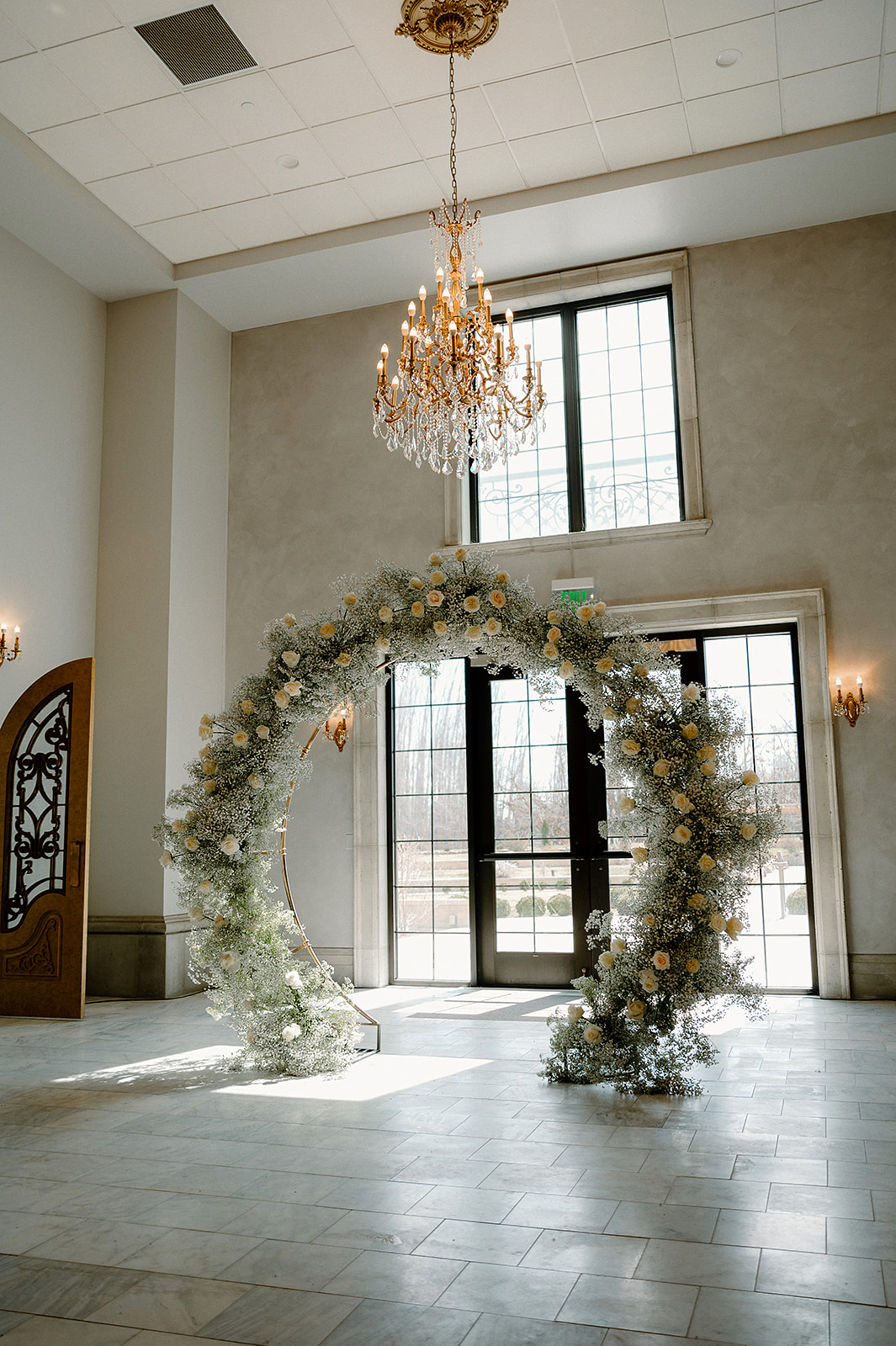Radion Photography | Sun Valley & Boise, Idaho | 208-440-8472

Choosing a Wedding Date: Pros and Cons of Each Season
Planning a wedding is a whirlwind of excitement, and one of the first big decisions you’ll make is picking that perfect date to say, “I do!” While it may seem like a simple task, choosing the wedding date involves a bit of magic and a dash of practicality. After all, this is the day that will mark the start of your forever love story!
So, let’s dive into the enchanting world of selecting the ideal wedding date that suits both your hearts’ desires and the practicalities of life.
Pros and Cons of Each Season
Spring:
Pros:
- Blooming flowers and lush landscapes create a picturesque backdrop for outdoor ceremonies and photos.
- Mild weather allows for a wider range of outfit options for both the couple and guests.
- Venues may offer more flexible pricing and availability compared to summer months.
Cons:
- Weather can be unpredictable, with occasional rain showers, so having a backup plan for outdoor events is essential.
- Popular wedding season, so venues and vendors might get booked up quickly.
Summer:
Pros:
- Sunny days and longer daylight hours offer more time for outdoor festivities and stunning sunset photo opportunities.
- Ideal for destination weddings or outdoor celebrations like beach or garden weddings.
- More flexible scheduling for guests due to vacation time availability.
Cons:
- High demand may lead to increased costs for venues and vendors during peak wedding season.
- Heat and humidity in some regions can be uncomfortable for guests and may require additional measures for comfort.
Fall:
Pros:
- Vibrant foliage creates a beautiful natural backdrop for outdoor weddings.
- Cooler weather allows for more comfortable attire choices, and it’s less likely to rain compared to spring.
- The availability of seasonal produce for catering can offer unique and delicious menu options.
Cons:
- Like spring, fall is also a popular wedding season, which may lead to increased competition for venues and vendors.
- Early sunset times may limit outdoor photo opportunities later in the day.
Winter:
Pros:
- Winter weddings can have a magical and cozy ambiance, especially with holiday decorations and warm lighting.
- Increased availability of venues and vendors, leading to potential cost savings.
- Winter themes and color palettes can be unique and elegant.
Cons:
- Cold weather may limit outdoor options, so indoor venues are preferable.
- Weather-related travel delays for guests in snowy regions can be a concern.
- Limited daylight hours may require careful planning for daytime events and photography.
Ultimately, the best season for your wedding depends on your preferences, vision, and practical considerations. Be sure to weigh these pros and cons, and choose the season that resonates most with you and your partner.
What is Peak Wedding Season?
In Idaho, the most popular wedding season typically aligns with the general trend of late spring and summer months. Therefore, the most popular time for weddings in Idaho is from late spring to early fall.
Specifically, peak wedding season in Idaho often starts around May and continues through the summer months of June, July, and August. During this period, the weather is usually pleasant, and the picturesque landscapes offer ideal settings for outdoor wedding ceremonies and receptions.
Couples planning a wedding during the peak season in Idaho should consider booking their preferred venues and vendors well in advance, as availability may be limited due to high demand. However, don’t forget that off-peak seasons, such as early spring or fall, can offer unique charm, potential cost savings, and more flexibility when planning your special day.
Fun Fact: According to The Knot, the most popular wedding date this year is September 23, 2023
How Soon After Getting Engaged Should We Pick Our Wedding Date?
Deciding on your wedding date is an exciting first step in your wedding planning journey. While there’s no hard and fast rule, it’s a good idea to choose your wedding date within the first few months after getting engaged.
Here are some factors to consider when setting your wedding date:
Enjoy the Engagement
Take some time to celebrate your engagement and enjoy this special phase of your relationship. Don’t rush into setting a date right away unless you have specific reasons to do so.
Discuss Priorities
Sit down with your partner and discuss your priorities and preferences for the wedding. Consider whether you want a short engagement or if you prefer a longer planning period.
Season and Weather
Think about the time of year you’d like to get married and the weather conditions during that season. This might influence your choice of indoor or outdoor venues.
Venue Availability
If you have a specific wedding venue in mind, check their availability for the time frame you’re considering. Popular venues can get booked up quickly, so it’s essential to inquire early. Your dream venue could very well determine what dates are available for you.
Guests’ Availability
Consider any important dates or commitments for close family and friends, such as major holidays, work obligations, or school schedules.
Budget and Planning
Setting a wedding date will give you a timeline to work with when creating a budget and planning your wedding details.
If you plan to have a destination wedding, it is even more crucial to have details nailed down far in advance.
Wedding Planning Around the Date
The chosen wedding date has a significant impact on wedding planning. Booking the venue and securing vendors may become challenging during peak seasons, making it essential to plan early. Consider the weather during your selected season, as it may affect the comfort of your guests and the feasibility of outdoor events.
The date can also influence your budget, with off-peak seasons offering potential cost savings. Additionally, take into account the availability and schedules of key guests and vendors. Choosing a meaningful date and considering logistical factors, such as travel and accommodations, will help you create a memorable and well-organized wedding celebration.
What Holidays Should I Avoid?
Avoiding certain holidays can be beneficial for your wedding planning to ensure the availability of venues, vendors, and accommodation options for you and your guests. Here are some holidays you may want to consider avoiding:
- Major National Holidays: Holidays like Christmas, New Year’s Eve, and Thanksgiving can be challenging for guests to attend due to family commitments and travel plans.
- Valentine’s Day: While it may seem romantic to get married on Valentine’s Day, it’s a popular date for weddings, and venues and vendors may be booked up well in advance.
- Mother’s Day and Father’s Day: These holidays are essential family celebrations, and having your wedding on these dates might make it difficult for some guests to attend.
- Easter: Easter is a significant religious holiday, and some guests may have commitments or traditions during this time.
- Labor Day and Memorial Day Weekends: These long weekends are popular for getaways and vacations, which may impact guest attendance and travel costs.
- Fourth of July: Independence Day is a holiday filled with celebrations and events, making it challenging for guests and vendors to participate in a wedding.
- Halloween: While a Halloween-themed wedding can be fun, it may not be suitable for all guests, and some vendors might have their own events or commitments.
By avoiding these holidays, you can ensure better attendance from your loved ones and have a smoother planning process. However, always consider your personal preferences and any meaningful dates that hold significance to you and your partner. Remember that the perfect wedding date is the one that feels right for both of you!
Check With VIPs
Checking dates with VIPs, such as close family members and best friends, is crucial for successful wedding planning. It ensures their availability on your special day and prevents scheduling conflicts with important events in their lives. Involving them in the decision-making process strengthens relationships and creates a supportive atmosphere. Considering their input and showing consideration for their commitments fosters a shared experience that makes your wedding more memorable and enjoyable.
By checking your wedding dates well in advance, you can avoid family conflicts, make travel plans easier for guests, and ensure the presence of your most cherished loved ones on your wedding day, making it truly special and meaningful.
Can a Wedding Planner Help Decide The Date?
Yes, a wedding planner can help you choose the best wedding date. They know popular venues and vendors’ availability, ensuring you get the ones you want. They also consider your budget, weather, and guest convenience to find a suitable date. If you have any personal or cultural preferences, they’ll take those into account too. With a wedding planner’s expertise, you can select a date that’s perfect for your dream wedding.
Choosing a Wedding Date
Choosing the perfect wedding date is a beautiful blend of sentimentality and practicality. Take the time to consider what matters most to you as a couple and how you envision your special day. Remember to check with VIPs and consult with a wedding planner for expert advice and support.
Once you’ve found the special wedding date that resonates with your hearts, it’s time to capture the magic of your love story with Radion Photography. I can turn your cherished moments into timeless art, preserving the joy and emotions of your wedding day for generations to come. So, don’t wait any longer – book your consultation with Radion Photography and let your unforgettable journey begin!
Share this story
